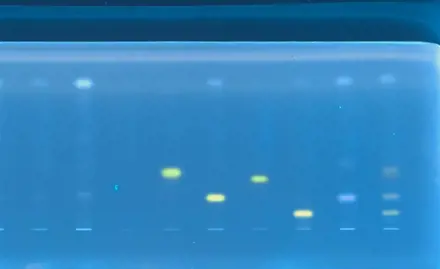Dr. Alan Bergmann

Tasks at the Ecotox Centre
- Developing bioassays for effect directed analysis
- Identifying toxicants in food packaging materials and drinking water
- Applying planar chromatography based bioassays
Areas of Expertise
- Analytical and bioanalytical chemistry
- in vivo and in vitro bioassays
- Chromatography-based analysis
- Effect directed analysis
- Passive sampling
Projects
CV
-
2017 - present
Postdoctoral researcher at the Ecotox Centre
-
2017
Postdoctoral researcher in Environmental and Molecular Toxicology, Oregon State University
-
2011 - 2017
PhD Candidate in Environmental and Molecular Toxicology, Oregon State University, Corvallis OR United States. Thesis Title: “‘Tis a gift to be simple: On passive sampling and related techniques for reducing the complexity of contaminant mixtures from the environment.”
-
2006 - 2011
B.S. diploma in Environmental Toxicology, Western Washington University, Bellingham WA United States
Publications
Bergmann AJ, Arturi K, Schönborn A, Hollender J, Vermeirssen ELM (2025) Effect-directed analysis of genotoxicants in food packaging based on HPTLC fractionation, bioassays, and toxicity prediction with machine learning. Anal Bioanal Chem. 2025;417(1):131-42; doi.org/10.1007/s00216-024-05632-y
Bergmann AJ, Masset T, Breider F, Dudefoi W, Schirmer K, Ferrari BJD, et al. (2024) Estrogenic, Genotoxic, and Antibacterial Effects of Chemicals from Cryogenically Milled Tire Tread. Environ Toxicol Chem. 43(9):1962-72; doi.org/10.1002/etc.5934
Bergmann AJ, Breitenbach M, Muñoz C, Simon E, McCombie G, Biedermann M, et al. (2023) Towards detecting genotoxic chemicals in food packaging at thresholds of toxicological concern using bioassays with high-performance thin-layer chromatography. Food Packaging Shelf. 36:101052. https://doi.org/10.1016/j.fpsl.2023.101052
Bergmann, A. J., Simon, E., Schifferli, A., Schönborn, A., & Vermeirssen, E. L. M. (2020). Estrogenic activity of food contact materials - evaluation of 20 chemicals using a yeast estrogen screen on HPTLC or 96-well plates. Analytical and Bioanalytical Chemistry, 412, 4527-4536. doi.org/10.1007/s00216-020-02701-w , Institutional Repository
Bergmann AJ, Points GL, Scott RP, Wilson GR, Anderson KA. Development of quantitative screen for 1550 chemicals with GC-MS (2018). Analytical and Bioanalytical Chemistry. 410(13): 3101-3110. https://doi.org/10.1007/s00216-018-0997-7
Bergmann AJ, North PE, Vasquez L, Bello H, Del Carmen Gastanaga Ruiz M, Anderson KA (2017). Multi-class chemical exposure in rural Peru using silicone wristbands. J Expo Sci Environ Epidemiol. DOI: 10.1038/jes.2017.12
Bergmann AJ, Tanguay RL, Anderson KA. Using passive sampling and zebrafish to identify developmental toxicants in complex mixtures (2017). Environ Toxicol Chem. 36(9):2290-8.

